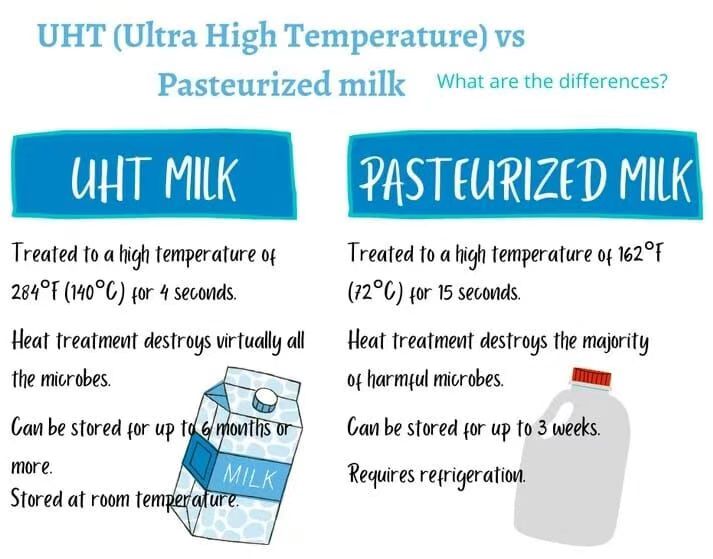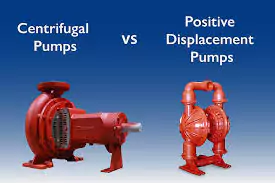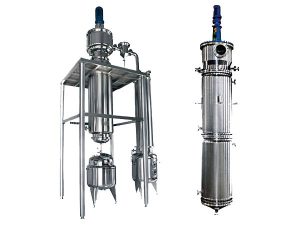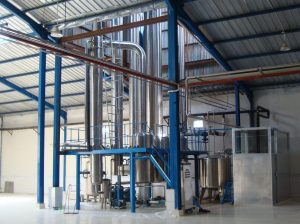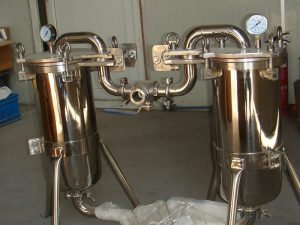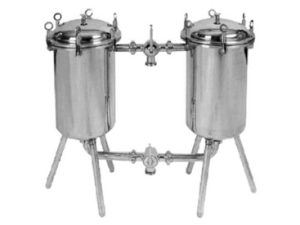In the highly competitive food manufacturing sector, efficiency, hygiene, and reliability are non-negotiable. Choosing the right pump system can significantly impact production quality, operational uptime, and compliance with food safety standards. Among the various pump types, centrifugal pumps in food processing have emerged as a cornerstone of modern production lines, offering exceptional performance for a wide range of applications.
In this blog, we explore the 6 key benefits of centrifugal pumps in the food industry, highlighting their applications, advantages, and how they streamline operations. Whether you are sourcing food-grade centrifugal pumps or evaluating high-efficiency pumps for food industry processes, this article will help you make informed decisions.
Table of Contents
Toggle1. High Efficiency for Continuous Production
Centrifugal pumps are engineered for high-capacity flow rates, making them ideal for large-scale, continuous production lines in food and beverage manufacturing. Their hydraulic design minimizes energy consumption while ensuring steady and reliable liquid transfer.
-
Applications:
-
Transferring water, brines, and syrups in bulk
-
Handling cleaning-in-place (CIP) cycles efficiently
-
Moving high volumes of low-viscosity liquids like fruit juices
-
2. Sanitary Design for Food Safety
Food manufacturers must adhere to strict hygiene regulations, such as FDA, EHEDG, and 3-A Sanitary Standards. Food-grade centrifugal pumps are designed with smooth stainless steel surfaces, sanitary seals, and minimal dead zones, which reduce contamination risks.
-
Key Sanitary Features:
-
316L stainless steel construction prevents corrosion
-
Polished internal surfaces resist bacterial adhesion
-
Clean-in-place (CIP) and sterilize-in-place (SIP) compatibility
-
3. Versatility Across Multiple Food Products
One of the greatest advantages of centrifugal pumps in food production is their versatility. A single pump model can handle various product categories, making it an ideal investment for facilities with diverse production lines.
| Product Type | Example Applications | Pump Advantage |
|---|---|---|
| Low-viscosity fluids | Milk, juice, water | High flow, low shear |
| Semi-viscous fluids | Syrups, sauces, dressings | Moderate efficiency, cost savings |
| Cleaning agents | CIP solutions, sanitizing fluids | Durable seals, easy cleaning |
4. Reduced Maintenance and Operational Downtime
Unlike complex positive displacement pumps, centrifugal pumps have fewer moving parts. This simplicity lowers maintenance requirements, reduces spare part costs, and minimizes downtime.
-
Maintenance Benefits:
-
Easy seal replacement without dismantling the entire pump
-
Lower lubrication and wear part requirements
-
Longer service intervals, even under continuous operation
-
5. Gentle Handling of Sensitive Food Products
Delicate products like dairy, juices, and fermented beverages require gentle fluid transfer to prevent foaming, shear stress, or nutrient loss. Centrifugal pumps for juice and dairy processing maintain product integrity while ensuring efficient throughput.
-
Product Benefits:
-
Preserves taste and freshness of juice
-
Maintains smooth texture in dairy products
-
Prevents air entrapment during transfer
-
6. Cost-Effective and Scalable
From small craft production lines to multinational factories, centrifugal pumps provide scalable solutions. Their relatively low upfront cost, combined with energy efficiency and durability, makes them one of the most cost-effective choices for food manufacturers.
| Pump Type | Initial Investment | Energy Efficiency | Maintenance Cost | ROI Timeline (Est.) |
|---|---|---|---|---|
| Centrifugal Pump | Low | High | Low | 12–18 months |
| Positive Displacement | High | Moderate | Moderate | 24–30 months |
FAQ – Centrifugal Pumps in Food Industry
Q1: What makes centrifugal pumps better suited for food applications than other pump types?
A1: Their hygienic stainless steel design, high flow rates, and energy efficiency make them ideal for handling large volumes of low-viscosity fluids in compliance with food safety standards.
Q2: Can centrifugal pumps handle thick or highly viscous products?
A2: They are best suited for low to medium-viscosity products. For very thick pastes, positive displacement pumps may be more suitable.
Q3: Are centrifugal pumps compatible with CIP (Cleaning-in-Place) systems?
A3: Yes, modern sanitary centrifugal pumps are CIP/SIP compatible, ensuring easy and cost-effective cleaning.
Q4: How long is the typical lifespan of a food-grade centrifugal pump?
A4: With proper maintenance, stainless steel centrifugal pumps can last 10–15 years or more, making them a solid long-term investment.
Q5: Can centrifugal pumps be customized for specific food processing needs?
A5: Absolutely. From seal configurations to impeller types, pumps can be tailored for dairy, juice, sauces, or other specific food production applications.
Conclusion
For procurement managers, engineers, and decision-makers in the food industry, centrifugal pumps are not just a piece of equipment—they are a long-term investment in efficiency, compliance, and product quality.
By offering hygienic design, energy efficiency, versatility, and gentle product handling, centrifugal pumps address the most pressing challenges in modern food and beverage production.
Whether your focus is juice, dairy, sauces, or large-scale CIP processes, the right centrifugal pump can optimize throughput, reduce costs, and ensure consistent product quality.
👉 Ready to upgrade your food processing line? Explore our centrifugal pumps and request a tailored quote today to discover how our solutions can transform your production efficiency.

